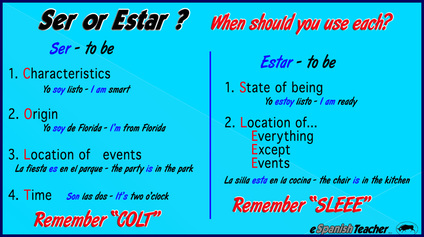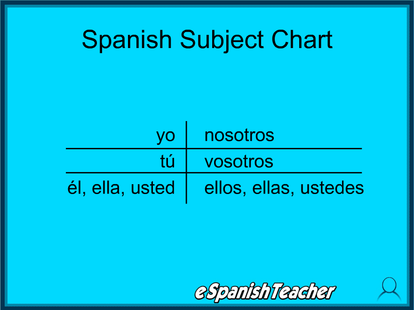BusinessInsider.com republished a Quora piece from Sanda Golcea, highlighting the most useful languages for English speakers. From the piece:
"Of course, when you learn a new language, your point is to reach to the biggest amount of people that language can offer for you. You probably want the language to be the most useful language when you trave. And languages used by mega international worldwide organizations are good ones to take into consideration. "If you only speak English and this is going to be your first foreign language, then you want an relatively easy language to learn. "You don't want to take years and years learning how to read all over again. You want a language that will empower you and a language that will be easy to learn and master to fluency. "Because if you're not fluent in the language after years and years of study, it's not going to be very useful." Read the entire article here: http://www.quora.com/As-a-person-with-English-as-my-first-language-what-would-be-the-most-useful-foreign-language-that-I-could-learn#ixzz3JAIomtIt  Thanks for taking time to learn a bit more about what I'm doing. My name is Scott, the creator of eSpanishTeacher's Beginner Spanish course. I've been speaking Spanish for over 20 years and teaching it for most of that time as well. Spanish did not come easily for me. I really had to grind through and force myself to learn the concepts in detail, which is one of the reasons my course is so effective. Because of that, I am able to teach the challenging parts of the Spanish language using clear language that's easy to understand. My passion is helping people speak Spanish quickly and affordably. That means YOU. It's my voice you hear on the CDs when you watch them on your computer. It's my mission to help you speak Spanish and that's why I offer a 100% satisfaction guarantee. I love hearing from folks who have used Beginner Spanish, so please send me your thoughts, testimonials, and questions by going here.
eSpanishTeacher's Beginner Spanish is a language course I created that has helped thousands of people speak Spanish over the past couple years. I've found that the secret to learning Spanish effectively and quickly is to have a reliable mentor available to explain and help you through the difficult concepts every step of the way. And that is what I want to be for you. The interactive Spanish lessons are taught by me, and I teach using simple terms to clearly explain the most difficult concepts. So whether you are learning Spanish for business, education, your personal life, or traveling abroad to a Spanish speaking country, you need to learn from an actual teacher with a proven track record who is dedicated to your success. Trust the expert teacher--eSpanishTeacher! One of the most basic principles that new students should learn that of agreement between nouns and articles. Nouns are a person, place, or thing, so it's pretty easy to remember them. Articles, while perhaps an unfamiliar word, are easy too. I have a whole lesson on Spanish articles in my course, but I'll give you a quick summary. Articles are the small words that typically precede the noun, such as "the", "some", "a", or "an". Some examples:
A house = article is "A", nous is "house" Some girls = article is "Some", noun is "girls" Spanish is a simple language to learn and only a bit more complicated than English. But actually, I don't think of it as more complicated, rather, it's more organized. I often get asked if Spanish is easy to learn and perhaps the added level of organization does indeed make it simpler to understand. But I digress. The purpose of this Spanish tip of the day is to reinforce the concept that articles must agree with the nouns they go with in terms of number and gender. I wrote a previous post about adjectives agreeing with their nouns and articles, which is a bit more complicated than today's tip. It's worth a read and will absolutely help you understand this concept better. The principle is essentially that the noun you choose must agree in number and gender with the article that precedes it, such as: Los perros tienen hambre = The dogs are hungry - notice "los" agrees with "perros" as they are both masculine (-os) and plural (end in "s"). Another example: La abogada es lista = The attorney is smart - notice the noun ("abogada") ends in "-a" so it is feminie. Therefore, the article ("La"), must also be the feminine form of "the", or "La". Notice also that the noun is singular (attorney, not attorneys), therefore the noun must be singular ("La", not "Las"). A few more examples: El bombero tiene agua = The firefighter has water - since the noun is singular and masculine, the article ("El") must also be singular and masculine Las maletas pesan much = The suitcases are heavy - "Maletas" is a plural and feminie article, therefore a plural and feminine article ("Las") is needed.  There are over 500 million people on the earth who already speak Spanish. These are interesting, dynamic, and energetic people with unique backgrounds. Whether you are expanding your business, making new friends, or moving to a new country, learning to speak Spanish will open the door to this new world. Not only will you be able to meet and interact with new and interesting people, you’ll also be introduced to new cuisines, cultures, lifestyles, and entertainment.  "Poder" is one of the most common verbs in the Spanish language. It's perhaps the most important verb for you to know. It means "to be able to" or "to can" (I can..., she can..., they can...). If you turn on a Spanish TV channel like Telemundo or Univision, you'll hear various usages of "Poder" in nearly every sentence. A few examples: Si se puede = yes you can Se puede [insert verb here] = You can ... Tú lo puedes hacer = You can do it There's a common usage of "Poder" that will help you be a more refined Spanish speaker that I want to cover today. Lots of people will say things like: Podemos trabar para tí = We can work for you ¿Puedes darme el libro? = Can you give me the book? Usted puede venir conmigo = You can come along with me These statements are a result of the speaker attempting to translate directly from English to Spanish. It can be tempting to do this and in many cases it's fine. And I want to be clear that the examples above are not incorrect, rather there are better ways to communicate the three statements above without using "Poder". Try this instead: Trabajamos para tí = We'll work for you ¿Me das el libro? = Will you give the book to me? Tu vienes conmigo = You come along with me (this is good because it's not quite a strong as the command, "Ven conmigo") The point of this post is that while "Poder" is one of the most fequently used verbs in Spanish, sometimes English speakers have a tendency to overuse it. So if you ever find that you're saying things like ¿Puedes ayudarme? = Can you help me? Puede ella tocar el piano? = Can she play the piano Stop and think for a minute how you might say it without using "Poder" ¿Me ayudas? = Can you help me? ¿Toca ella el piano" = Does/can she play the piano? Supplemental to the above, here is the spanish conjugation for Poder: Poder = To be able to / To can Yo puedo = I can Tú puedes = you can Él puede = he can Ella puede = she can Usted puede = you can (formal) Nosotros podemos = we can Vosotros podéis = you guys can Ellos pueden = they can (group of males or mixed gender) Ellas pueden = they can (group of females) Ustedes pueden = you all can Recently, Business Insider published 6 more reasons why it's important for everyone to learn to speak Spanish. The full article can be found here, but I'll summarize:
1. Spanish isn't a foreign language anymore 2. Learning Spanish will help your career 3. It will unlock a world of travel destinations 4. You can enjoy amazing books and movies 5. Spanish is easy to learn 6. Even the British are swapping French for Spanish These reasons from Business Insider are interestingly similar to my top 10 reasons you should learn Spanish that I have been publishing over the past year and goes to show that knowing how to speak Spanish will do so much for you. To this list I would add something along the lines of building relationships with wonderful people, enjoying a wider variety of cuisine, and opening your eyes to unique history and culture. Simply put, learning a new language, especially Spanish, is one of the best ways to enrich your life. Articles may sound confusing, but they are easy to understand. Most people don't know that articles are perhaps the most common words in the English language: "A" and "The" and "Some".
Singular articles: A - un, una The - el, la Plural articles: Some (plural of "A") - unos, unas The - los, las Like adjectives, articles must agree in number and gender with the nouns they modify, for example: Un libro - A book (notice that "Un" is singular and masculine to match "Libro" which is also singular and masculine. Una mesa - A desk ("Una" is singular feminine because it modifies a singular feminine noun, "Mesa") Unos libros - Some books ("Unos" is plural and masculine, so is "libros") Unas mesas - Some desks (Same thing here, "Unas" is plural and feminine to match "mesas", the noun it modifies)  In Spanish, adjectives that modify a noun must agree in number and gender with the nouns they modify. This is true in English too. Here is an example: The house is small Notices that house and small are both singular. In Spanish, this is easier to understand: La casa es pequeña - the house is small (casa and pequeña are both singular) And this: Las casas son pequeñas - The houses are small (notice that casas and pequeñas are both plural; so too are las and son for that matter, but we are confining this conversation to nouns and adjectives) This concept may seem basic, but it's an easy one to forget or skip over. And it gets more difficult when the noun you use doesn't end in "o" or "a". Take for example: El párque es grande - The park is large And this: Los párques son grandes - The parks are large (Noun: párque and adjective: grandes are both plural) The noun does not end in "o" or "a", so determining gender can be a bit more difficult, but the adjective must still agree in number and gender with the noun it modifies.  As a student Student of the Spanish language, one of the first things you'll learn is the subject pronoun chart or table (see graphic). This is a simple chart that displays the eight Spanish subject pronouns. For simplicity's sake, I refer to these as the Spanish subjects. On this blog post, I want to focus on two Spanish subject, "Usted" and "Tú". Both mean "you", however, they are used in different circumstances. Tú First, we'll start with "Tú" because it's the more common of the two subjects. It's used most often and has the meaning that is most similar to your understanding of "you" in English. This is the version of "you" that is used in friendly, less formal situations where you likely have close or casual relationships with the people you are speaking with. It's also used in informal social settings, like going out to dinner with friends or people who are roughly your same age who you might not know. Examples: Tú eres mi amigo = You are my friend Tú cantas con mi padre = You sing with my father Usted Of all the Spanish subject pronouns, "Usted" is perhaps the most difficult to understand, which is why we need a solid understanding of of "Tú" first. Usted means "you" but is considered the formal version of "you" and has the added effect of giving an extra level of respect or formality to the person with whom you are speaking. In other words, use Usted when you are speaking with someone in a formal setting or someone who deserves an added degree of respect beyond your every day accquantiances, friends, and family. Whether or not someone deserves an added level of respect varies based on who you are, your level of familiarity, your respective ages, and social status. You're probably asking yourself, "Does the Spanish language discriminate based on social standing?" The answer is a simply yes, it does. Usted es mi jefe = You (formal) are my boss Usted tuviste mucho éxito durante el año pasado = You (formal) had a lot of success last year If you a college student, you'd likely address your professors using "Usted". Likewise, if you were speaking with a government, corporate, or religious official, you would likely address that person using "usted". And in some case, you speak to the elderly using "Usted". There are exceptions to all these rules, but this is the general idea. Newer, less friendly relationships would lend to using Usted. Also, high-ranking officials in any organization would expect to be spoken to using "usted", at least until you became more friendly with the person. You would also speak to police officers and other public employees using "Usted". Friends and family typically would not speak to each other using "usted", unless it's a very young person speaking to his/her grandparent or parent. A teenager likely would not use Usted when speaking to a parent, however, a younger child might when being scolded. Likewise, bumping into someone on the street or in a store would not be an occasion to use "Usted". A good rule to follow is that the less familiar you are with someone that you meet in a formal or professional setting, the more likely you should use "Usted" until you become more familiar. Don't worry if you get it wrong. The best way to perfect your understanding of these two subjects is to use them a lot in your daily practice. |
AuthorThis is where we chat about all things Spanish. Feel free to ask a question, challenge me, passionately disagree, or rant about whatever. Just make it interesting. Archives
August 2018
Categories
All
|


 RSS Feed
RSS Feed
